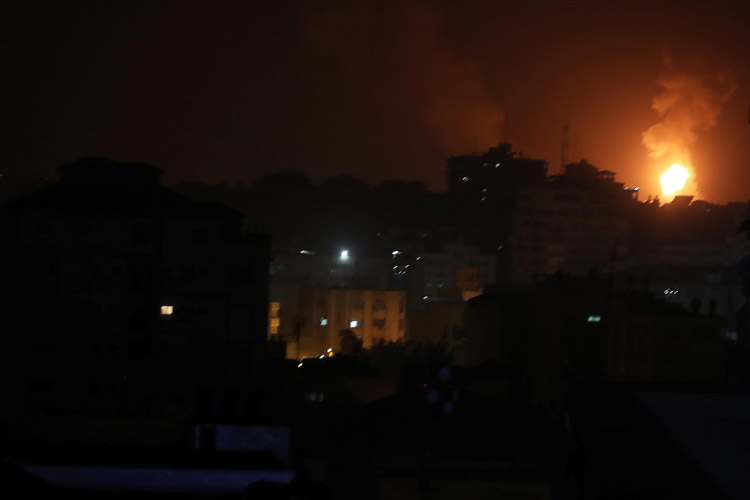
UN probe made it clear that Israel may have committed war crimes or crimes against humanity in responding to unrest in Gaza, as snipers intentionally shot civilians.
With tension already mounting ahead of the March 30 anniversary of Gaza protests that have left hundreds of Palestinians dead and thousands more injured, Israel is attempting to escalate the situation and the world community should remain vigilant against any more aggression by the occupation forces.
A rare rocket strike near Tel Aviv has compounded the problems, with Israeli Prime Minister Benjamin Netanyahu cutting short a Washington trip vowing a forceful response and the military deploying troops along Israel’s southern border.
Netanyahu’s threat sets the stage for a possible major conflagration just two weeks before Israeli elections.
On February 28, 2019 a UN probe made it clear that Israel may have committed war crimes or crimes against humanity in responding to unrest in Gaza, as snipers intentionally shot civilians. The victims included children, persons with disabilities – including a double amputee who was shot and killed while sitting in his wheelchair - journalists and medical personnel.
The situation sounds disturbing also because the World Health Organization has already cited shortages of medical supplies in Gaza’s stressed health care system, exacerbated by recent hostilities.
There is a need for the rest of the world to take a serious note of the impending humanitarian catastrophe in Gaza linked to the stifling restrictions on the Strip’s residents.
Depriving millions of Palestinians of access to a regular supply of clean water, stripping their land of minerals in an apparent act of pillage, full-steam expansion of settlements in the West Bank, which the United Nations and most countries deem illegal, are among the several continuing atrocities being committed by Israel, as recently revealed by Michael Lynk, UN special rapporteur on human rights in the Palestinian territories.
Ill-conceived decisions by certain countries only add fuel to fire. For example, Honduras’ description of occupied Jerusalem as Israel’s capital and its plan to open an office there for trade to complement its embassy in Tel Aviv does not augur well for the peace process. The country seems to blindly follow the footsteps of US President Donald Trump, who last May moved the US embassy to the disputed city.
Trump’s decision has not only been widely criticised by almost all foreign governments, but has also caused anger among Palestinians.
It is well known that East Jerusalem is still considered occupied under international law, and the city’s status is to be decided as part of an Israeli-Palestinian peace agreement.
A similar move by the Romanian prime minister who promised in Washington that her country would move its embassy in Israel from Tel Aviv to occupied Jerusalem breaks with the stated position of both the European Union and apparently her own country’s president.
Romania’s President Klaus Iohannis has rightly opposed the move as a breach of international law and has made it clear that in any case, such a shift would require presidential approval.
The continuing widespread violations of human rights in the Occupied Palestinian Territory, including East Jerusalem, exposes Israel’s abject disregard to international law. The occupation forces would view any more silence as not only a sign of weakness, but also concurrence.
The international community should get involved in order to avoid more dastardly killings by Israel and more shootings during the Gaza protests anniversary.